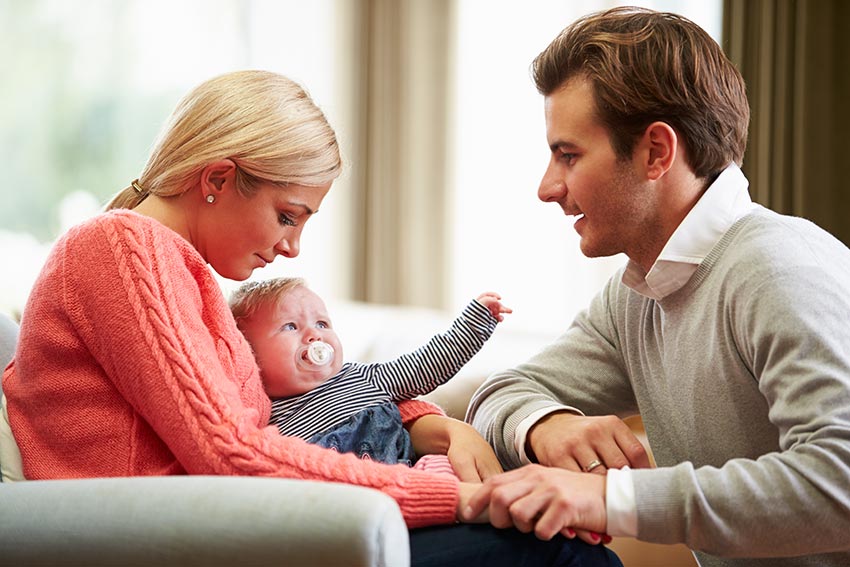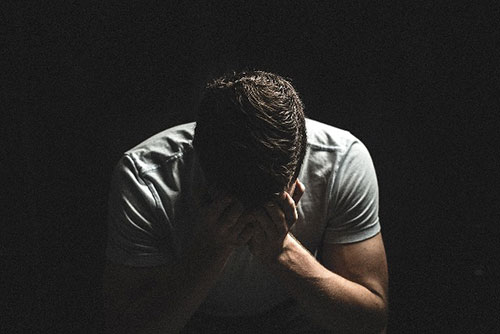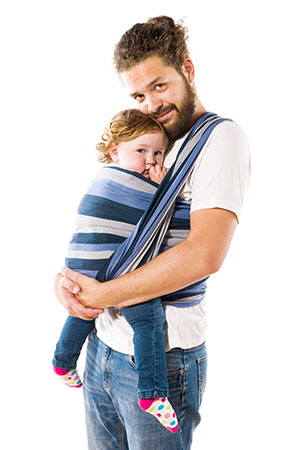New mamas are not the only ones afflicted by this emotionally draining condition. Dads are equally susceptible to PND, or paternal postpartum depression, in the first year of the child’s life. It could come about suddenly or happen gradually, and the intensity might range from mild to acute.
Although studies have shown that it affects up to 10 per cent of new dads around the world, the figure is believed to be much larger as men, typically, wear the shroud of indifference when it comes to reporting depression. While there is no one answer to explain the whys behind post-partum depression in men, it is usually seen as a result of the emotional and stressful situations that are aggravated following the birth of the baby.

New challenges and pressures of fatherhood are at times difficult to manage, triggering PND. And, if the relationship with the partner saw a rough patch during the pregnancy, it might get further strained; there are also chances of the partner’s post-natal depression triggering an episode in the new dad.
Some of the common symptoms of PND among new dads are:
- Feeling low or despondent
- Constant crying or the urge to weep
- General tiredness and a lethargic feeling
- Inability to cope with the responsibility
- A sense of guilt about not giving enough love and attention to the baby
- Irritable and even indifferent to the partner
- Irrational thoughts
- Loss of appetite or indulgent eating
- Difficulty sleeping
- Panic attacks and anxieties
- Difficulty concentrating
- Headaches and pains; feelings of sickness
- Obsessive thoughts about baby’s wellbeing
- Recurrent thoughts about death
While therapy and medication are advised to overcome some or all of the hard-hitting symptoms, there are little things that you, as a new dad, can do to overcome depression and enjoy this beautiful phase of your life.
- Acknowledge that you are indeed facing an uphill task in coping with the changes in your life. If you have been experiencing the symptoms mentioned, you need to pause and understand that you do need help to fight the depression.
- Share your mental turmoil with your partner, a family member or a friend. Talking and communicating your struggles and your overpowering emotional problem is an important step to move forward.
- If possible, meet new dads and create opportunities to share your thoughts and experiences of becoming a new dad. You might find solace in understanding you are not alone or even learn ways to overcome the lapses.
- Take time out for yourself from all the new responsibilities and commitments. Indulge in a hobby or take up a DIY task; a round of golf or your favourite sport with friends is always effective.
- Workouts can play a big role in energising your body and mind. Walks are helpful in calming your mind and giving you a better perspective of your life and the current situation.
- Press the brakes on all the feelings of guilt by shifting the thoughts away from the lack of attention and indifference to the baby to more pronounced care. Keep reminding yourself of your position in the baby’s life and do little things to appease your guilt. Whether it is changing the nappy and giving a bath or simply cuddling the baby, little things will add up to quell your guilt.
- Do not get tempted to apply negative coping strategies to suppress those feelings of inadequacy. Looking for extra office work or finding excuses to stay away from home will only aggravate the situation. Face the situation that is inducing feelings of inability to cope and find ways with your partner to change it for both of you.
- Communicate with your partner and address the changes that have taken place in your relationship following the birth of your baby. Do not let the initial strain in the relationship widen; sit down, talk and resolve every little issue that has come up in the days following the delivery.
- Seek professional help if you feel overwhelmed by depression. You might need counselling to get a grip on the situation or even medication to put a check on the symptoms.


